Hildebrand; or, The Days of Queen Elizabeth, An Historic Romance, Vol. 3 of 3 Read online
Produced by David Edwards and the Online DistributedProofreading Team at https://www.pgdp.net (This file wasproduced from images generously made available by TheInternet Archive)
HILDEBRAND.
NEW WORK, BY THE SAME AUTHOR.
_Preparing for Publication, in 3 vols. 8vo._,
THE OLD TEMPLE: AN HISTORICAL ROMANCE.
BY THE AUTHOR OF “HILDEBRAND,” _&c. &c._
“Within the Temple hall we were too loud, The garden here is more convenient.”
SHAKSPEARE.
LONDON: JOHN MORTIMER, ADELAIDE STREET, TRAFALGAR SQUARE.
HILDEBRAND: OR, THE DAYS OF QUEEN ELIZABETH.
AN HISTORICAL ROMANCE.
BY THE AUTHOR OF “THE KING’S SON.”
Frugal and wise, a Walsingham is thine; A Drake, who made thee mistress of the sea, And bore thy name in thunder round the world. Then flamed thy spirit high; but who can speak The numerous worthies of the maiden reign? In Raleigh mark their every glory mix’d; Raleigh, the scourge of Spain! THOMSON.
IN THREE VOLUMES.
VOL. III.
LONDON: JOHN MORTIMER, ADELAIDE STREET, TRAFALGAR SQUARE. MDCCCXLIV.
LONDON: PRINTED BY HENRY RICHARDS, BRYDGES-STREET, COVENT-GARDEN.
HILDEBRAND.
CHAPTER I.
It was on the same evening that closed the preceding chapter ofthis history, and while the dusk was hardly yet apparent, thatthe maiden Abigail passed up the principal staircase of themansion of Master Shedlock, known as New Bethlehem, to a chamberon the upper floor.
Whatever might be her reason, she affected to step forward withexcessive gentleness; but her shoes, being of the very strongestmaterial, and hobnailed withal, were not the best adapted togive her purpose effect, and, in her way upward, her foot made aheavy stamp at every step. But, judging from the expression ofher face, she appeared to be insensible of this, and to considerthat her progress was unattended by any intimation of her tread.
On reaching the summit of the stairs, she hastened along thepassage beyond, on which the stairs opened, to a neighbouringdoor, leading to an inner chamber. She opened the door with greatcaution; and after a moment’s pause, as if for the purpose oflistening, made a step forward, and passed into the chamber.
It was a bed-room, and, from various appearances around, wasevidently occupied by an invalid. Indeed, such a person was, ona close survey, observed to be in possession of the bed; andher peculiar head-gear announced her to be a woman. It was DameShedlock.
That poor lady’s ardent powers of endurance had been overwhelmed,at last. And what powers, of mere earthly constitution, couldbear up unshaken against one uninterrupted tide of oppressionand persecution? Since she last appeared on the stage of ourhistory, her trials had, in point of bitterness and violence,even increased, and she was now subject to even more gallingmortifications. The temper and habits of the hypocriticalShedlock had become more tyrannical than ever, and, as hispassive and uncomplaining victim, she was the only object onwhich his spleen could fall.
We are told, that “the wicked shall flourish,” not only in agreat degree, but with such marked and decided vigour, that theirprogress shall be compared to the rapid growth and prosperityof “a green bay-tree.” We see this remarkable declaration soeffectively and exactly fulfilled, on looking out on the openstage of the world, that, if borne well in mind, it must lendthe troubled heart the most soothing assurance. If the wickedare so to flourish here, how inconceivably happier must be theportion of the good man, relying on perfect equity, and lovebeyond the apprehension of human sense, in the world to come!The future reward is promised as surely, as decidedly, and asdistinctly, as the present advantage; and we have, even in atemporal respect, a more attractive incitement to virtue, thanall the glory and riches of the world can insure to vice.
But, in our progress onward, we often see the man of crime,after a long course of prosperity and success, suddenly checkedin his career, and overwhelmned with disaster even in thepresent life. His subtlety, his craft, his cunning, and hisshrewd calculations, on which he had relied with such advantagehitherto, all at once fail of their end; one after the other, hisschemes and pursuits bring him only disappointment; and eventswhich fall with lightness on others, and the general effect ofwhich is scarcely noticeable, act with surprising accuracy towork his utter ruin.
Shedlock’s course of uninterrupted prosperity had seemed to meeta sudden and sensible check. From the moment that, in the mannerdescribed heretofore, he had sought to effect the destructionof Sir Edgar de Neville, his fortunes had taken a new turn,and had brought him nothing but crosses. Instead of advancingin favour of the minister, which he conceived that his showof zeal would certainly prefer him to, and which, indeed, wasthe expectation that led to his interference, the part he hadtaken in the affair of Sir Edgar appeared to have given offence;and he had, moreover, the mortification to see the prosecutionquashed, and Sir Edgar cleared from all imputation. His vexationat this result was increased, if possible, by other incidents.Sir Edgar had hardly returned to the Grange, when one of thenew functionaries called _concealers_, appointed to investigatesuspected tenures, challenged him to show by what right andauthority he held possession of Clifford Place. Although, afterconsiderable trouble, he appeared to satisfy the official ofthe integrity and validity of his possession, the fact of histenure being even questioned, when no claimant to it seemed tohave come forward, showed him to be a marked and doubted holder.Some serious losses in his commercial pursuits, from which hehad expected to reap an enormous profit, happened about the sametime; and, altogether, his affairs assumed a very gloomy andunpromising aspect.
Shedlock’s temper was not of the kind that would be subdued bythese reverses. The adverse influence that they involved, insteadof arousing in him the voice of remorse, only rendered himmore stubbornly vile; and he became more morose, violent, andtyrannical at each visitation. His bitter temper was a tormentto all who were any way connected with him; at home, it plaguedhis household; abroad, it haunted his tenants; but more than all,sleeping or waking, day or night, it dealt its fullest violenceon his loving and patient wife.
Dame Shedlock sank under it fast. Long suffering, through yearsof unmitigated tribulation, had already introduced disease intoher delicate frame; and increased persecution gave it strengthand root. As it continued to press upon her, she gradually grewfeebler and more feeble; and ultimately, yet without drawing fromher one complaint, or any way impairing that abject love andsubmission which she invariably rendered its heartless minister,it reduced her to the melancholy and cheerless helplessness of asick-bed.
At the moment that it has been deemed necessary to recall herto the stage of our history, she was lying awake, yet perfectlystill, with her eyes turned towards heaven. Her generalcomplexion was deadly pale; but on either cheek, crowning thesurrounding whiteness, there was a bright spot of red, lookingmore like fever than genuine bloom. Her eyes, too, thoughwearing a serene expression, sparkled like f
ire, and, on a closeinspection, seemed to ache with their own light.
She retained the rapt look described for a full minute, when,hearing a step approach, she turned her glance towards the door,and discerned Abigail. That eccentric domestic, having continuedher progress, had by this time made good way, and come close tothe bed. She caught the glance of her mistress on the instant;and in a manly voice, and with her accustomed brevity, but morekindness than her face promised, proceeded to explain what hadbrought her to her presence.
“The man’s come,” she said.
“What man?” asked Dame Shedlock, anxiously. “Ah! I remember me!Thou meanest Bernard Gray?”
Abigail nodded her head, affirmatively. “And where is _he_?”faltered the dame.
“A-reading the Word,” answered Abigail.
“The Lord lend him light!” ejaculated the dame, in faint accents.“Be thou watchful, Abigail; and bring the man hither!”
Abigail, merely nodding her head in reply, hereupon turnedaway, and stepped slowly from the chamber. In a few minutes shereturned, and, in the same cautious manner, ushered into the roomthe already announced visiter.
Bernard Gray--for it was no other--did not wear his usual aspect.There was, indeed, still a degree of sadness on his brow; but hisair of profound melancholy, which formerly he presented at alltimes, and which was far from becoming, had quite disappeared.Moreover, his eyes, if regarded closely, revealed a softerexpression, and, in their more natural and subdued light, lookedkindlier and more gentle. An improvement was also visible in hisattire. Though his habits, if examined attentively, were stillvery unpretending, they were arranged with more taste, and hadevidently been put on with some regard to appearance. For allthis, he still looked mournful; and as he entered fairly into theroom, and observed the position of Dame Shedlock, the expressionof his face became heavier, and seemed even more sad and gloomy.
He waved Abigail to retire after he had glanced at the bed; andthat ancient maiden, though somewhat sulkily, accordingly passedout, and left him alone with her mistress.
Having carefully closed the door, Bernard turned round, andadvanced silently to the bed.
Dame Shedlock, though still lying down (for, as there was nodrapery to the bed, the view was uninterrupted), had kept hereyes upon him from the first moment of his entry, and, to allappearance, without being the least disturbed. As he drew nigh,however, her serenity gave way, and she became visibly agitated.
“No! no!” she said, in faltering accents: “not now! I cannot tellthee now!”
“Well, well, mistress, be it anon, then,” answered Bernard,mildly. “Whatever it affect, give thyself no care, I prithee. Howis it with thee?”
“Grievous! grievous!” rejoined Dame Shedlock. “I am dying!”
“Alack!” exclaimed Bernard.
“’Tis even so,” resumed the dame. “The Lord calls me; and mustnot I, his servant, give his voice good heed? So be it; for asgrass we are green in the morning, and at night are cut down, andwithered.”
Bernard’s eyes brightened. “Set thy lamp in order, then,” hesaid, “that, when the bridegroom comes, thou be not like thefoolish virgins, but have thine oil ready.”
“’Twas for that I bid thee hither,” replied the dame, faintly.“And, verily, I must despatch, while life yet serves me, or Ishall be as the condemned of the parable.”
She paused here; and the short, strained breaths which sheexhaled, with her increased paleness, showed that she had exertedherself beyond her powers. After a brief interval, however,during which Bernard regarded her anxiously, but made no oralobservation, she appeared to recover herself, and resumed.
“The boy--the man, now,” she said--“Hildebrand Clifford; ’twas ofhim I would speak.”
“He is well,” answered Bernard, “and, as I am advised, inEngland--in Lantwell.”
Though she had hitherto seemed quite helpless, his auditor, onhearing this unexpected intelligence, abruptly raised herself inthe bed, and gazed doubtingly in his face.
“In Lantwell?” she said.
“Even so,” returned Bernard.
“Then, can I not ease my poor conscience,” observed the dame,feebly wringing her hands. “No! no! ’twere a greater sin to wrong_him_, old and lonely as I shall leave him.”
“Yet wrong not thyself, or thy precious soul,” suggested Bernard,with his wonted sternness.
The dame shuddered.
“Take comfort!” said Bernard, more kindly.
“I have it!” resumed the dame, eagerly, yet in subdued accents.“An’ I give thee that will establish young Clifford’s rights,wilt thou suffer _him_, who is now old, and near his time, tohold them till he depart?”
“By my soul, will I!” exclaimed Bernard. “But what canst thougive me will do this?”
“I will tell thee,” answered the dame; “yet first swear theoffence shall be held secret!”
“I swear it, by the Lord!” said Bernard, devoutly.
“Old Master Clifford, as thou knowest, held his dame in lawfulwedlock,” replied the dame, “but there is no record thereof inthe parish book. The page that did record it was torn out.”
“Ah!” cried Bernard.
“Forbear a while,” pursued the dame. “’Twas torn from the bookby--by _him_. The Enemy urged him to ’t; and in an evil hour,when the Lord had forsaken him, he sought to destroy it.”
“Is it lost?” cried Bernard vehemently.
“’Twas in the blue chamber,” continued the dame, in a lessdistinct and more tremulous voice; “and as he raised it to thelamp, the man Zedekiah, on some errand, called him to the door.The Lord put it into his heart to lay the folded paper on thetable; and while he conferred with Zedekiah at the door, I caughtit up, and placed in its stead one of no import. The changepassed, and he burned the false paper.”
Bernard breathed more freely. “The Lord reward thee!” he said.
The dame, breathless and exhausted, paused a space, when, witha convulsive effort, but in a very low and agitated tone, sheresumed.
“I hold the right one still,” she said.
And, as she spoke, she raised her hand, and pointed tremulouslyover her shoulder. With this last effort, all her strength, ifsuch it might be called, was exhausted, and she fell gasping toher pillow.
Bernard, who had been watching her intently, and was now greatlyalarmed, sprang forward a pace, and sought to raise her headin his arms. But before he could accomplish his purpose, thechamber-door, which was right opposite to where he stood, wassuddenly thrown open, and Abigail rushed in.
“The master’s coming!” she said to Bernard.
“He comes at an ill time,” answered Bernard. “I fear me, themistress hath swooned.”
“An’ he see thee, he will kill her,” cried Abigail, hastilystepping up to him.
Thus speaking, she glanced anxiously round the room; and hereye, after running over several objects, rested on the doorof a closet, or wardrobe, behind the bed-head. Her sulky andill-natured-looking features, which had just before appeared soanxious, contracted a broad grin as she discerned this covert;and she pointed it out to Bernard.
“Get thee in there,” she said. “I will look to her.”
Albeit, as the approaching step of Shedlock was now audible,there was no time to be lost, Bernard still paused to glanceanxiously at the face of Dame Shedlock; and it was not tillAbigail again warned him of his peril, and the greater perilin which he involved the dame, that he turned to his retreat.Scarcely had he entered the wardrobe, and closed the door in hisfront, when Shedlock made his appearance.
Abigail, no longer apprehensive of a surprise, had just placedone of her arms under the dame’s neck, and was gently raising herhead, when Shedlock entered. The dame, it now appeared, was notin a swoon, and, as Abigail raised her head, and thus facilitatedher respiration, she looked up. There was, however, no sense inher gaze, or thought in her aspect.
“Art better?” asked Abigail.
“I have it safe!” cried the dame, hysterically.
“I have it safe!He burned it not!”
Shedlock, who had paused at the chamber-door, here sprangforward, and rushed to the side of the bed.
“What says she?” he demanded. “Verily, her name is Legion, andshe hath a devil.”
He sought to push Abigail aside as he spoke, but that individual,to his great surprise, turned round on him, and maintained herposition unmoved.
“What wouldst thou?” she inquired.
“Back, woman!” cried Shedlock; “and tempt me not!”
“Back thou, man!” answered Abigail. “Seest thou not she bedistract?”
“Verily, an’ thou move not aside, the Lord shall make theeas chaff in my hands, and as beaten stubble,” said Shedlock,threateningly.
“Go to!” cried Abigail. “Thou art as the Levite in the parable,which left the wounded man on the way-side.”
“I will have thee burned for a witch,” cried Shedlock, furiously,and, at the same time, pushing violently against her.
Abigail, throwing all her strength into her hold, caught him byboth his arms, and, apparently with but little effort, thrust himbodily back.
“An’ thou be not gone, I will noise thy doings abroad,” she said.“She will be dead anon; and, verily, her ghost shall haunt thee,like thine own shadow, all the days of thy life.”
Shedlock’s pale visage quivered at these words. Though he was anatheist, and believed neither in GOD nor hereafter, but conceivedthat the beautiful world, and all its perfect and universalanimation, with the thousands of occult worlds above, were thework and offspring of chance, his soul was bound in the grossestsuperstition. He fairly shuddered at the horrible image withwhich Abigail had threatened him; and though his rage, in themain, was no way abated, it was not equal to his base fear, andhe shrank back appalled.
“Take off the curse, and I will be gone,” he said.
“Begone, then!” exclaimed Abigail; “and repent, for the kingdomof heaven is at hand!”
The hypocrite, with his heart burning with malice, yet afraid tospeak a word, turned slowly away, and passed in silence from thechamber.
Meantime, his helpless and suffering wife, left to herself, hadremained in the same state of delirium, and continued to giveutterance to her incoherent ravings. When he had passed out ofsight, Abigail turned to her; but quickly discerned, from herhaggard and unconscious aspect, and the burning fever of hereyes, that she could afford her no relief. She then turned to theneighbouring wardrobe, and, drawing open the door, called forthBernard.
“Get thee hence, now,” she said; “and be wary, on thy way out,that he sees thee not. I must tarry here with _her_.”
“I would I could speak a word more with her,” answered Bernard.“I covet some paper she told me of, of great import, that shehath hidden away.”
“Hear’st thou not how she raves?” returned Abigail. “Get theegone!”
Bernard, whether because he saw that his staying would be of noavail, or feared to offend Abigail, said no more; but, thoughwith evident reluctance, turned silently away. Softly crossingthe chamber, he passed into the passage without; and thence,after a cautious _reconnoissance_, proceeded to the staircase,and descended to the porch without being observed.
Abigail remained in the chamber with Dame Shedlock. After atime, the dame, though she seemed to be still insensible, ceasedto rave; and Abigail ventured to leave her for a while, anddescend to the kitchen for a light. When she returned, she foundthe dame lying in the same position; but, to her mind, lookingless unconscious, and more at ease. Seemingly much pleased atthis, the eccentric servant, as a precaution against accidents,set the light down on the hearth, and then threw herself into acontiguous chair. She had sat thus but a short time, when shefell into a profound sleep.

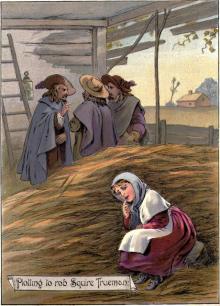 Goody Two-Shoes
Goody Two-Shoes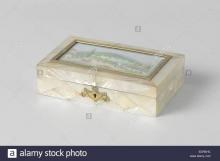 The Pearl Box
The Pearl Box And when you gone...
And when you gone... Stranger At The Other Corner
Stranger At The Other Corner My Young Days
My Young Days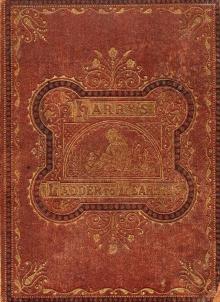 Harry's Ladder to Learning
Harry's Ladder to Learning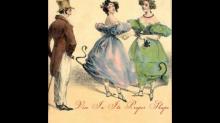 Vice in its Proper Shape
Vice in its Proper Shape_preview.jpg) Promise (the curse)
Promise (the curse) The First Sexton Blake
The First Sexton Blake Golden Moments
Golden Moments Hildebrand; or, The Days of Queen Elizabeth, An Historic Romance, Vol. 2 of 3
Hildebrand; or, The Days of Queen Elizabeth, An Historic Romance, Vol. 2 of 3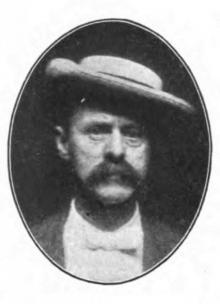 The Ice Queen
The Ice Queen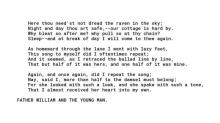 Phebe, the Blackberry Girl
Phebe, the Blackberry Girl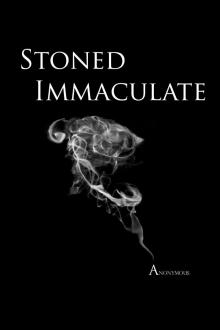 Stoned Immaculate
Stoned Immaculate Hildebrand; or, The Days of Queen Elizabeth, An Historic Romance, Vol. 3 of 3
Hildebrand; or, The Days of Queen Elizabeth, An Historic Romance, Vol. 3 of 3 The Wonder of War on Land
The Wonder of War on Land Breaking Bailey
Breaking Bailey The Little Girl Who Was Taught by Experience
The Little Girl Who Was Taught by Experience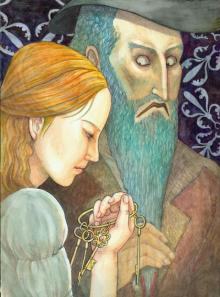 The Popular Story of Blue Beard
The Popular Story of Blue Beard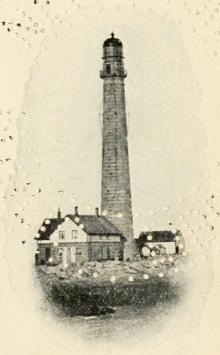 The Life Savers: A story of the United States life-saving service
The Life Savers: A story of the United States life-saving service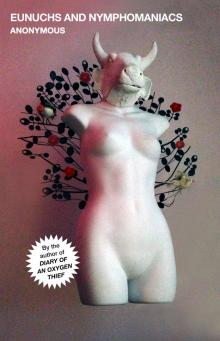 Eunuchs and Nymphomaniacs
Eunuchs and Nymphomaniacs Hildebrand; or, The Days of Queen Elizabeth, An Historic Romance, Vol. 1 of 3
Hildebrand; or, The Days of Queen Elizabeth, An Historic Romance, Vol. 1 of 3 Kitty's Picnic, and Other Stories
Kitty's Picnic, and Other Stories Two Yellow-Birds
Two Yellow-Birds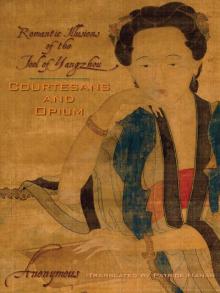 Courtesans and Opium
Courtesans and Opium The Emigrant's Lost Son; or, Life Alone in the Forest
The Emigrant's Lost Son; or, Life Alone in the Forest Toots and His Friends
Toots and His Friends Fast Nine; or, A Challenge from Fairfield
Fast Nine; or, A Challenge from Fairfield Ned Wilding's Disappearance; or, The Darewell Chums in the City
Ned Wilding's Disappearance; or, The Darewell Chums in the City A Picture-book of Merry Tales
A Picture-book of Merry Tales The Trail of The Badger: A Story of the Colorado Border Thirty Years Ago
The Trail of The Badger: A Story of the Colorado Border Thirty Years Ago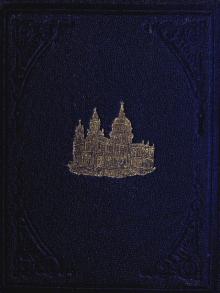 Peter Parley's Visit to London, During the Coronation of Queen Victoria
Peter Parley's Visit to London, During the Coronation of Queen Victoria The Rainbow, After the Thunder-Storm
The Rainbow, After the Thunder-Storm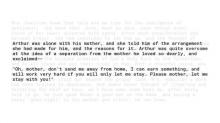 Arthur Hamilton, and His Dog
Arthur Hamilton, and His Dog The Story of the White-Rock Cove
The Story of the White-Rock Cove Grushenka. Three Times a Woman
Grushenka. Three Times a Woman Adventures of a Squirrel, Supposed to be Related by Himself
Adventures of a Squirrel, Supposed to be Related by Himself Falling in Love...Again
Falling in Love...Again The Colossal Camera Calamity
The Colossal Camera Calamity Child of the Regiment
Child of the Regiment Elimination Night
Elimination Night The Kingfisher Secret
The Kingfisher Secret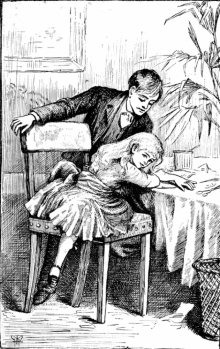 Left to Ourselves; or, John Headley's Promise.
Left to Ourselves; or, John Headley's Promise. The Island of Gold: A Sailor's Yarn
The Island of Gold: A Sailor's Yarn Adventures of Bobby Orde
Adventures of Bobby Orde Twain, Mark: Selected Obituaries
Twain, Mark: Selected Obituaries When Love Goes Bad
When Love Goes Bad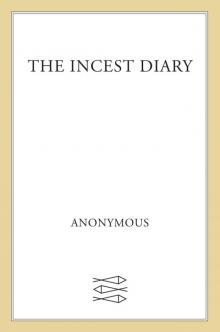 The Incest Diary
The Incest Diary Calling Maggie May
Calling Maggie May The Infidelity Diaries
The Infidelity Diaries Diary of an Oxygen Thief (The Oxygen Thief Diaries)
Diary of an Oxygen Thief (The Oxygen Thief Diaries) ARABELLA
ARABELLA The Eye of the Moon
The Eye of the Moon Dara
Dara THE ALTAR OF VENUS: The Making of a Victorian Rake
THE ALTAR OF VENUS: The Making of a Victorian Rake The Book of Death
The Book of Death The Book of David
The Book of David The Devil's Graveyard
The Devil's Graveyard The Book With No Name
The Book With No Name I Am A Lesbian
I Am A Lesbian Njal's Saga
Njal's Saga The Epic of Gilgamesh
The Epic of Gilgamesh Darling
Darling Tal, a conversation with an alien
Tal, a conversation with an alien Go Ask Alice
Go Ask Alice Aphrodizzia
Aphrodizzia The Campus Trilogy
The Campus Trilogy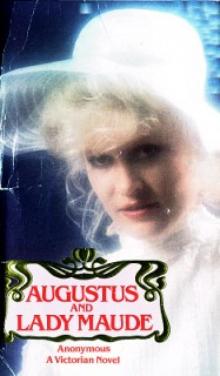 Augustus and Lady Maude
Augustus and Lady Maude Lucy in the Sky
Lucy in the Sky Sight Unseen
Sight Unseen Pleasures and Follies
Pleasures and Follies The Red Mohawk
The Red Mohawk A Fucked Up Life in Books
A Fucked Up Life in Books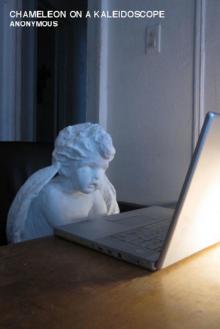 Chameleon On a Kaleidoscope (The Oxygen Thief Diaries)
Chameleon On a Kaleidoscope (The Oxygen Thief Diaries) Astrid Cane
Astrid Cane BEATRICE
BEATRICE The Song of the Cid
The Song of the Cid